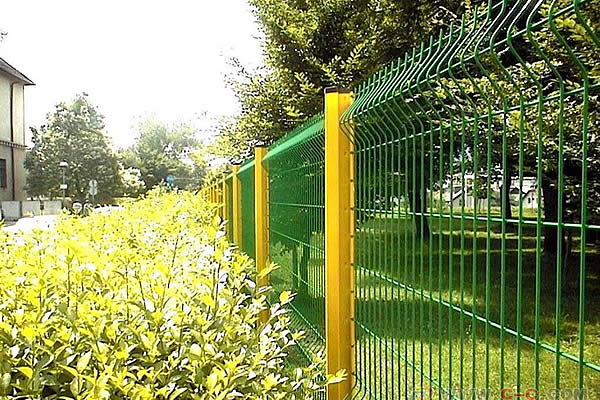 TEL:
+86-13102802206
TEL:
+86-13102802206
 Email:
fencenetting@china.com
Email:
fencenetting@china.com
 Language
Language
 TEL:
+86-13102802206
TEL:
+86-13102802206
 Email:
fencenetting@china.com
Email:
fencenetting@china.com
 Language
Language


Using Chicken Wire Fencing for Your Garden A Versatile Solution
When it comes to gardening, protecting your plants from pests and unwanted animals is crucial for a thriving garden. One practical and cost-effective solution for this is chicken wire fencing. Made from thin, flexible wire that is typically galvanized to resist rust, chicken wire fencing offers a range of benefits that make it an ideal choice for gardeners looking to secure their plants.
Why Choose Chicken Wire Fencing?
1. Affordability One of the biggest advantages of chicken wire is its low cost. Compared to other fencing options, chicken wire is much more budget-friendly. This makes it an accessible choice for gardeners of all experience levels and financial backgrounds.
2. Versatility Chicken wire can be used in various applications. It is suitable for protecting vegetable gardens, flower beds, and even young trees from herbivorous intruders like rabbits, deer, and other small animals. Additionally, it can be fashioned into cages or supports for climbing plants, providing both protection and structure.
3. Easy Installation Installing chicken wire is a straightforward process that can often be completed in a single weekend. The lightweight nature of the material means it can be easily shaped and bent to fit the contours of your garden. With just a few staples or fence posts, you can create a sturdy barrier without the need for heavy equipment or professional assistance.
4. Visibility and Aesthetic Appeal Unlike solid fences, chicken wire is transparent, allowing light to reach your plants while offering a clear view of your garden. This transparency helps maintain the aesthetic appeal of your outdoor space without blocking natural beauty or views.

5. Durability When properly maintained, chicken wire can last for several seasons. Its galvanized coating prevents rust and corrosion, allowing it to withstand various weather conditions. Additionally, the flexibility of the wire allows it to bend and adjust without breaking, making it resilient against strong winds and mild impacts.
Tips for Using Chicken Wire Fencing in Your Garden
1. Height Matters When installing chicken wire, consider the height necessary to keep certain animals out. For instance, rabbits may require a shorter fence of about 2 feet, whereas deer might necessitate a fence that is at least 6 feet tall.
2. Secure the Bottom To prevent small animals from digging underneath the fence, it’s advisable to bury a few inches of the wire into the ground or extend it along the ground to deter burrowing.
3. Reinforcement For added strength, consider using wooden or metal posts to secure the corners and middle of the fence. This will help maintain its integrity and prevent sagging over time.
4. Regular Checks Regularly inspect your chicken wire fencing for any damage or wear. Tighten loose areas and repair any holes promptly to ensure your plants remain protected.
In conclusion, chicken wire fencing is a practical solution for garden protection. It’s affordable, versatile, easy to install, and provides the necessary durability to withstand the elements. By integrating chicken wire into your garden design, you can ensure your plants flourish while keeping unwanted visitors at bay. Embrace the benefits of chicken wire and watch your garden thrive!